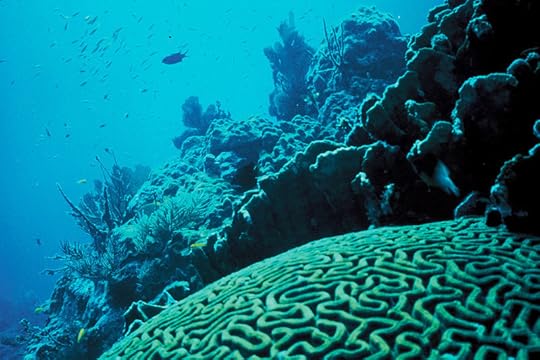440. Five Wonders I Will Never See
BROWDERBOOKS
Don't miss this:
MY INTERVIEW WITH COLLEEN
For my interview with Colleen Chesebro, novelist and word witch, go here and scroll down. But the link to this blog will get you only to post #417, "Kill," since that was the latest one when the interview was done months ago.
I'm still waiting for the e-book formatting to be done, following which copies of my new nonfiction title, New Yorkers: A Feisty People Who Will Unsettle, Madden, Amuse and Astonish You, will become available. I will then show the front and back covers here. For my published books, go here.
I am now up to my ears in SEO -- search engine optimization. Not that I know what I'm doing. What I'm trying to do is figure out what keywords people use that might bring them to my books and blog. This involves a whole new bunch of terms. Do you know what any of these mean?
SERPROICTR CPCPPCARC
The answers are at the end of the post below. Once you see them, all will be clear. In principle, at least.
In my post #424 I listed five things I hate and five weird things I love, with commentary. Here now is another of my fives:
FIVE WONDERS
I WILL NEVER SEE
1. a coral reef2. a painted bunting3. Lake Tear of the Clouds, Feldspar Brook, and the Opalescent River4. the pounding fury of a herd of wild horses galloping5. a huge mass of black ice rising from the polar sea and then sinking back into the water, perhaps never to be seen again.
Commentary:
1. Oceanographer Jacques Cousteau has described coral reefs as resembling dwarf skulls, petrified mauve bushes, witches’ heads, white walking canes by the hundreds, and frozen parasols. Coral reefs are inhabited by feather bonnets that explode into the stinging spines of the lion fish, and moray eels glowering from crevices and baring their savage teeth. Who wouldn’t want to see such wonders, even at the risk of rapture of the depths, when the diver is tempted to explore mysterious populations still deeper, and risks madness and death.
 katyinthecalacademy
katyinthecalacademy
2. Our most beautiful bird, the male flaunting bold splotches of blue, green, and red. Though recently he was spotted in Manhattan, I have never seen him, since normally he disdains the usual south-to-north spring migration path of Eastern birds that brings them to the Ramble in Central Park and to me. Instead, he winters in southern Florida and points south, then migrates westward to the American Southwest, or to coastal Florida, Georgia, and South Carolina. And to make matters worse for birdwatchers, he is secretive and hard to observe.
 DickDaniels
DickDaniels3. The lake is the source of the Hudson River in the far north of the state, high in the Adirondacks. Water from the lake pours into the brook and the river. The very names of all three enchant me.
 Lake Tear of the Clouds
Lake Tear of the Clouds4. I have seen such horses in the 1953 French film Crin blanc (White Mane), which shows them racing about the Camargue, a region in southern France bounded by the Mediterranean on the south, and on the other sides by the two arms of the Rhône delta. Unknown to tourists, the Camargue has lakes and marshlands that are a haven for wild birds, but also, as seen in the film, herds of wild horses, and the French cowboys that try to capture and tame them.
Though I have never seen them, wild horses also run free in the American West, grazing belly-deep in tall grasses, often dotting the hills as far as the eye can see. Having removed them from public land, where their grazing has depleted the grasses, the Bureau of Land Management stores 46,000 of them on some 60 private ranches at a cost that eats up much of the Bureau’s budget. The horses’ natural enemies, wolves and mountain lions, have been eradicated, allowing the horses to reproduce to the point that the grasslands are overgrazed and in danger. But for me, an Easterner who hasn't been on a horse since the summer camp of his childhood (and then unhappily), wild horses suggest a magnificent force of nature that we humans have yet to subdue.
 Not easy to find photos of them galloping.
Not easy to find photos of them galloping.smerikal
 Ordinateur
Ordinateur5. Such a phenomenon is described in Robert Macfarlane’s recent bestseller, Underland: A Deep Time Journey, of which I read a review. He witnessed it in the Arctic. (For more about him, see my post #416, "Descent into Darkness: Revelations, Fecundity, and Death.")
 Black ice in the polar sea, though not what Macfarlane witnessed.
Black ice in the polar sea, though not what Macfarlane witnessed.There will always be wonders that we hear of but will never see. Word of them reminds us of what an incredibly rich, diverse, and complicated world we live in. To deny or ignore such wonders is to deny life and let your sense of wonder atrophy. Without a sense of wonder, life is dull, dead.
SERP. Search engine results page.
ROI. Return on investment.
CTR. Click-through rates.
CPC. Cost per click.
PPC. Pay per clock.
ARC. Advance review copy.
Now all is clear, is it not?
Coming soon: "The King of Harlem." The last word on a flamboyant dazzler and lord of heroin who almost got away with it. Or maybe a scam alert, depending on how things go in the next few days.
© Clifford Browder 2019
Published on December 15, 2019 05:32
No comments have been added yet.



